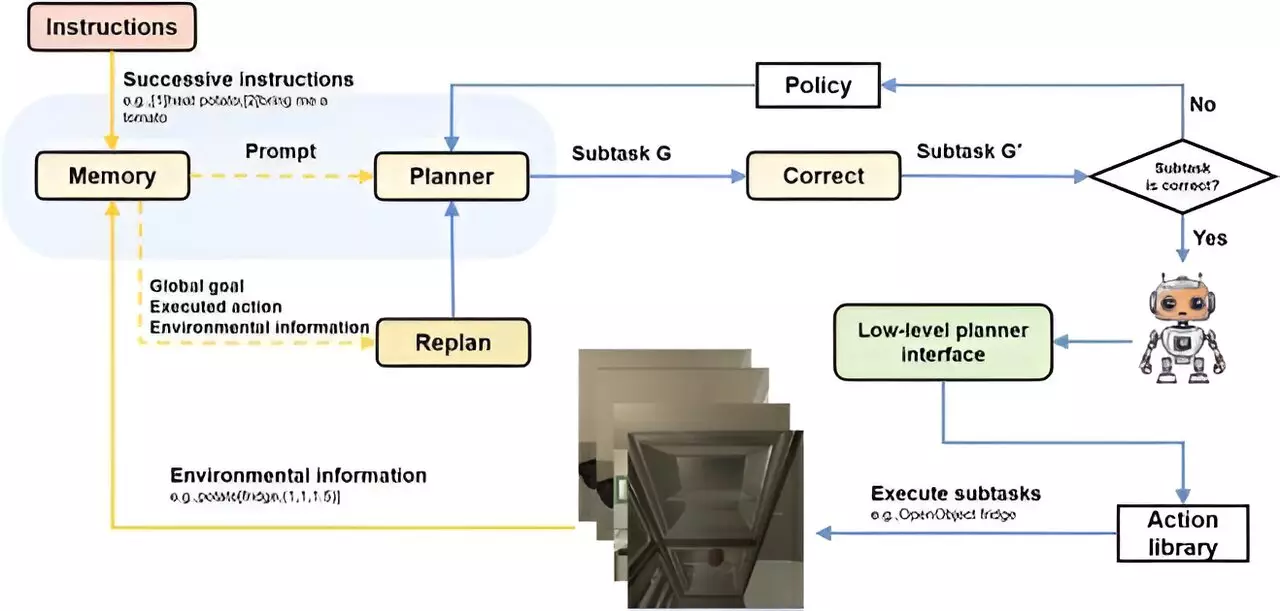The field of robotics has taken a major leap forward with the unveiling of a new artificial intelligence framework by researchers from Shanghai University. This groundbreaking framework, known as “Correction and Planning with Memory Integration” (CPMI), harnesses the power of large language models (LLMs) to enhance the way robots interpret and execute tasks. Traditionally, robots have struggled with unexpected challenges and changes in their tasks, requiring explicit programming and extensive data for navigation and interaction. However, the CPMI framework introduces a dynamic approach that integrates memory and planning capabilities within LLMs, enabling robots to adapt and learn in real-time.
Led by Yuan Zhang and Chao Wang, the research team behind the CPMI framework has introduced a revolutionary method of using LLMs as central decision-making elements in robotic tasks. This innovative approach allows robots to break down complex instructions, plan actions more effectively, and correct their course in response to obstacles or errors. One of the standout features of the CPMI framework is its memory module, which grants robots the ability to remember and learn from previous tasks. This human-like memory and experience mimicry enable robots to improve efficiency over time and adapt swiftly to new situations.
Testing the CPMI framework in the ALFRED simulation environment has yielded impressive results, particularly in “few-shot” scenarios where robots have limited examples to learn from. The framework not only achieved higher success rates but also demonstrated significant improvements in task efficiency and adaptability. By integrating memory and planning within a single AI-driven framework, robots can continuously enhance their decision-making processes, reducing the dependence on extensive pre-programming and data collection.
The potential applications of the CPMI framework are vast, ranging from domestic robots aiding in household tasks to industrial robots navigating complex manufacturing processes. As LLMs evolve, the capabilities of CPMI-equipped robots are expected to grow, paving the way for more autonomous and intelligent machines. The Shanghai University team remains optimistic about the future of robotic technology and plans to further refine the framework, focusing on enhancing memory capabilities and testing in diverse and challenging environments. This technology has the potential to revolutionize not only the field of robotics but any domain that relies on complex, real-time decision-making.
The research conducted by the Shanghai University team sets a new benchmark for AI integration in robotics, signaling a shift towards more advanced AI technologies in everyday life. With continuous development in frameworks like CPMI, the vision of having intelligent, adaptable robots capable of performing a wide range of tasks effectively and independently is steadily becoming a reality. The future of robotics looks promising as researchers push the boundaries of AI innovation, ushering in a new era of automation and intelligence.



Leave a Reply